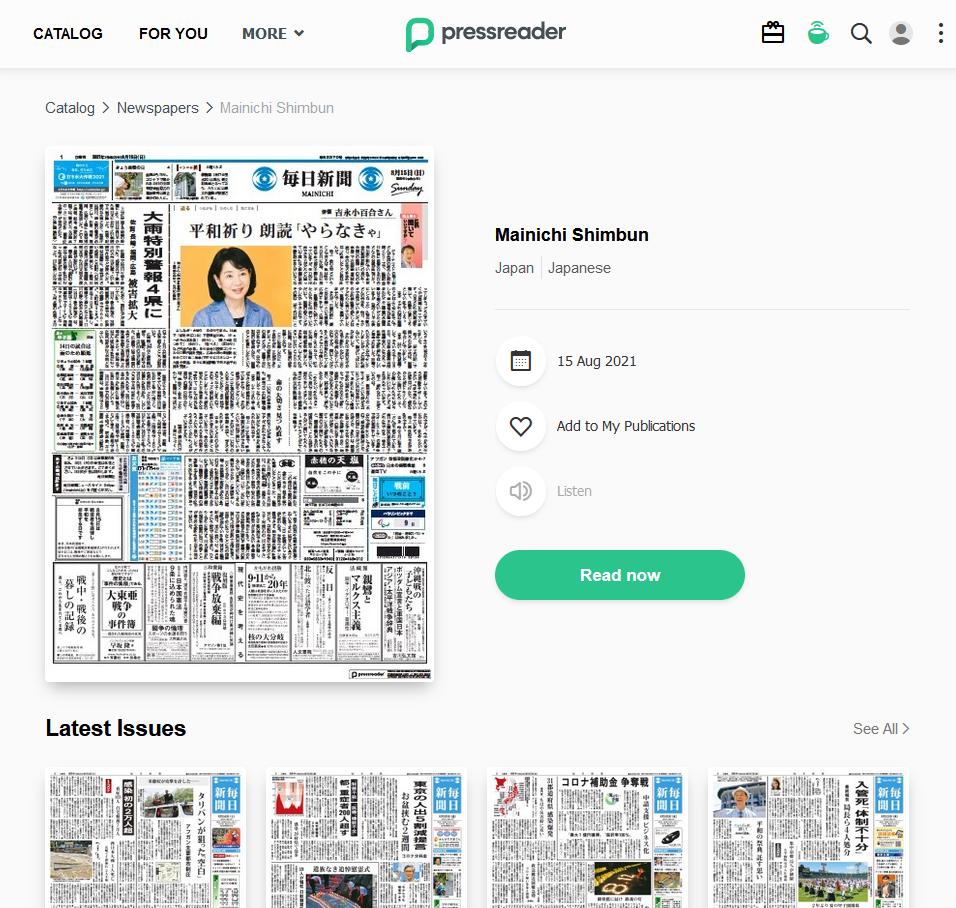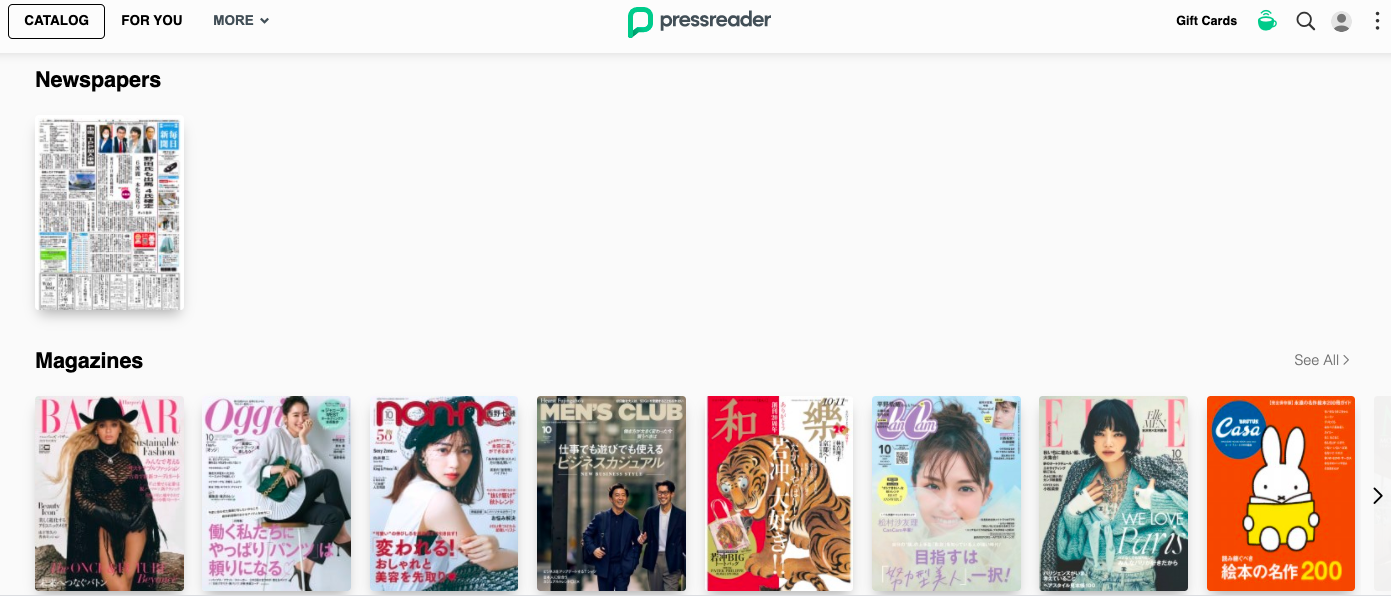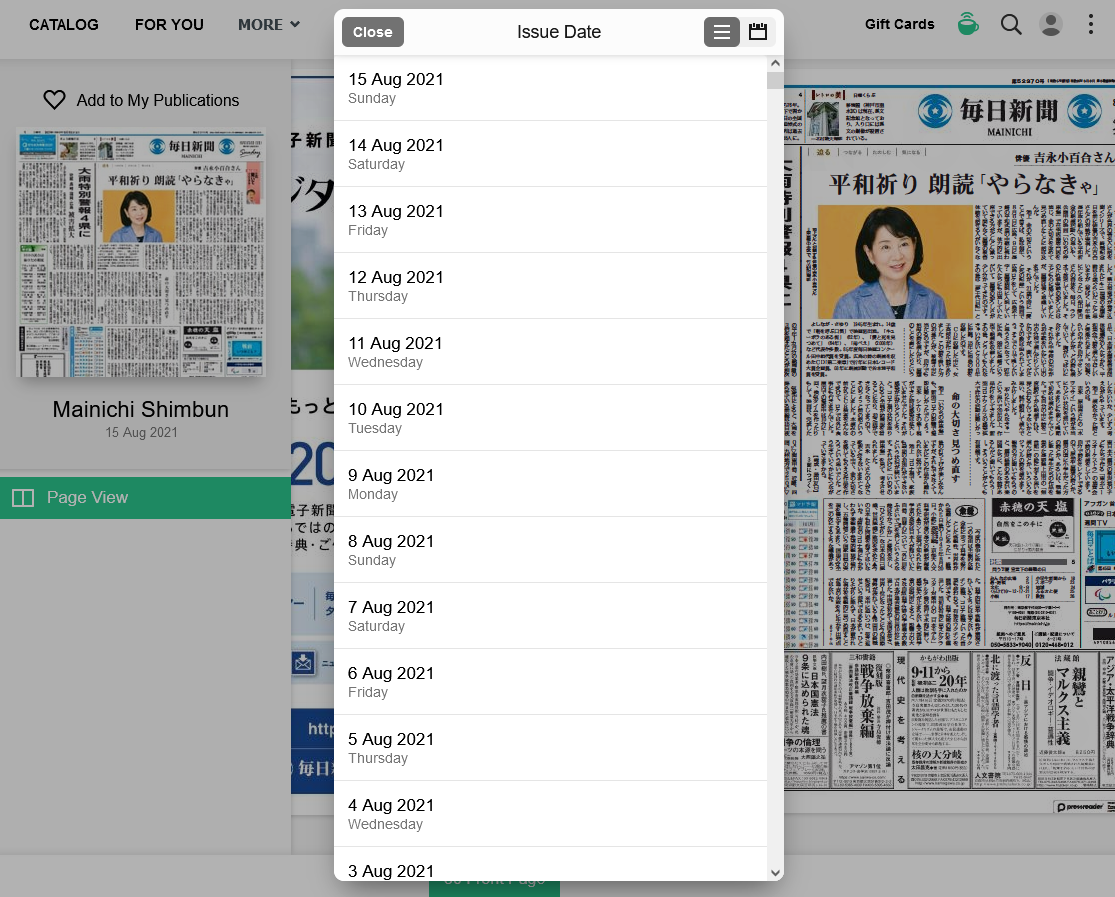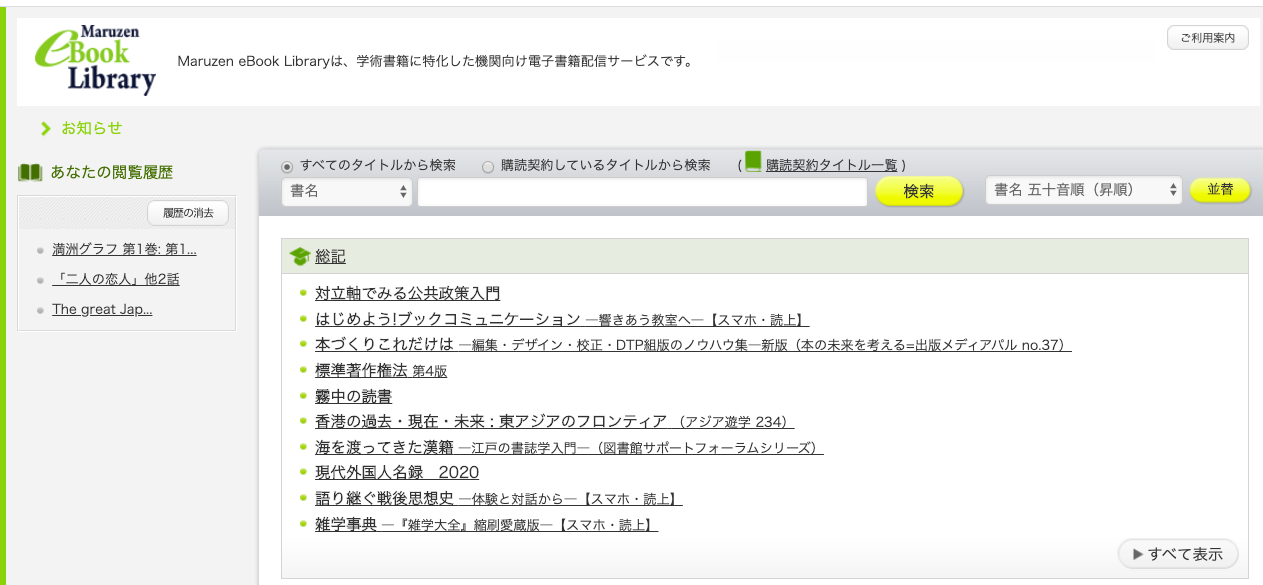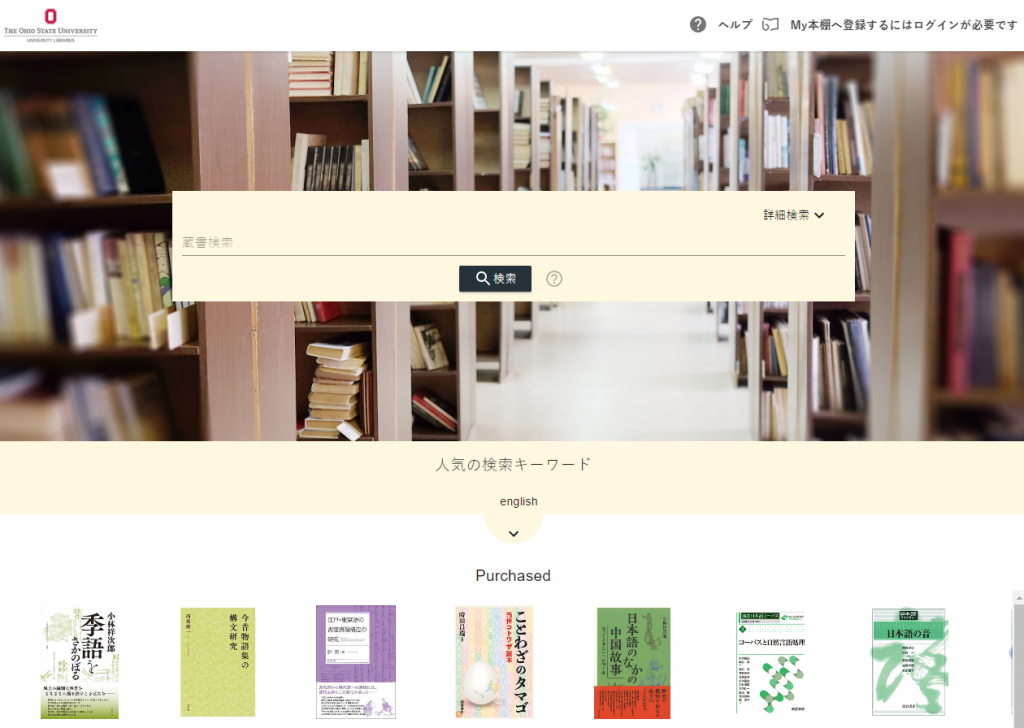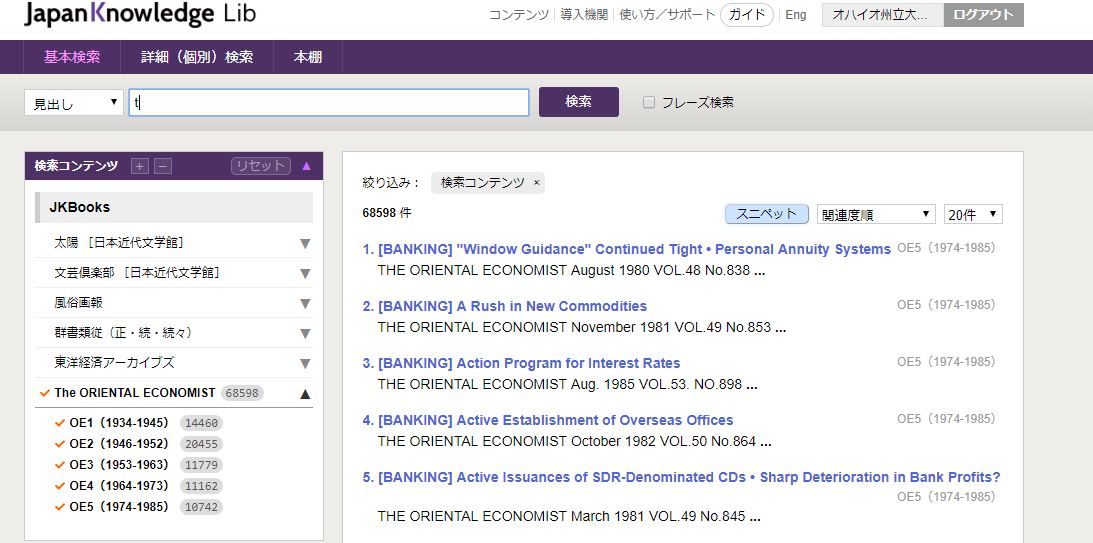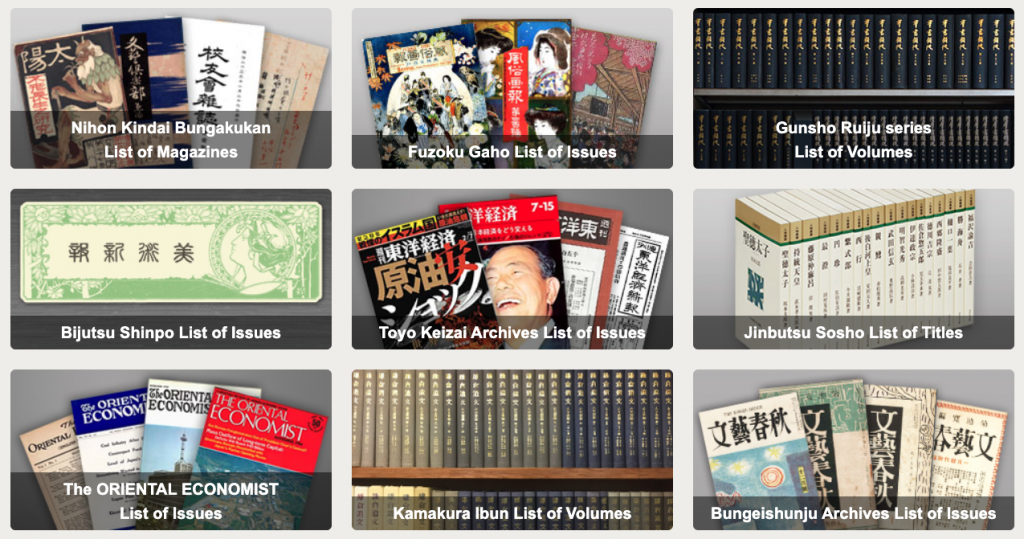
A glimpse of titles available on the JKBooks “Book Shelf” (Hondana) search page
You may have caught our earlier posts outlining some of OSU Libraries’ useful Japanese Studies online databases and archives. In the past, we’ve covered the Maruzen e-Book library and the KinoDen digital library, and described some specific collections including The Oriental Economist Archives and Manchuria Daily News Online.
Here I would like to highlight specifically JapanKnowledge Books, or “JKBooks,” a valuable database with access to a range of corpora dating from antiquity to the present. Presently, our libraries offers access to 11 titles (of the total 13 that are available for sale) to users with OSU credentials. This list is expanding all the time, and just this year, in fact, we have acquired three new titles. (To preview these titles, please use the link here to jump down to our list below.)
As the name suggests, JKBooks is connected to the JapanKnowledge database. However, in contrast to JapanKnowledge, which contains a lengthy list of reference books — specialized dictionaries, encyclopedia, and yearbooks, for example — JKBooks offers specialized corpora of primary sources.
Three of my favorite JKBook titles are Taiyo (The Sun), a 19th-20th century magazine; the Gunsho Ruiju series, a compilation of manuscripts dated from ancient times to the early modern era; and the ORIENTAL ECONOMIST archives, a monthly English language magazine elucidating economic topics in industrialized, Imperial Japan. This is only a small sampling of the interesting and valuable JK Books collections you can access online!
Incidentally, while JapanKnowledge is a Japanese platform, with Japanese-language materials, English users can easily switch the interface language by clicking the “Eng” button found in the top right of every page (see image):
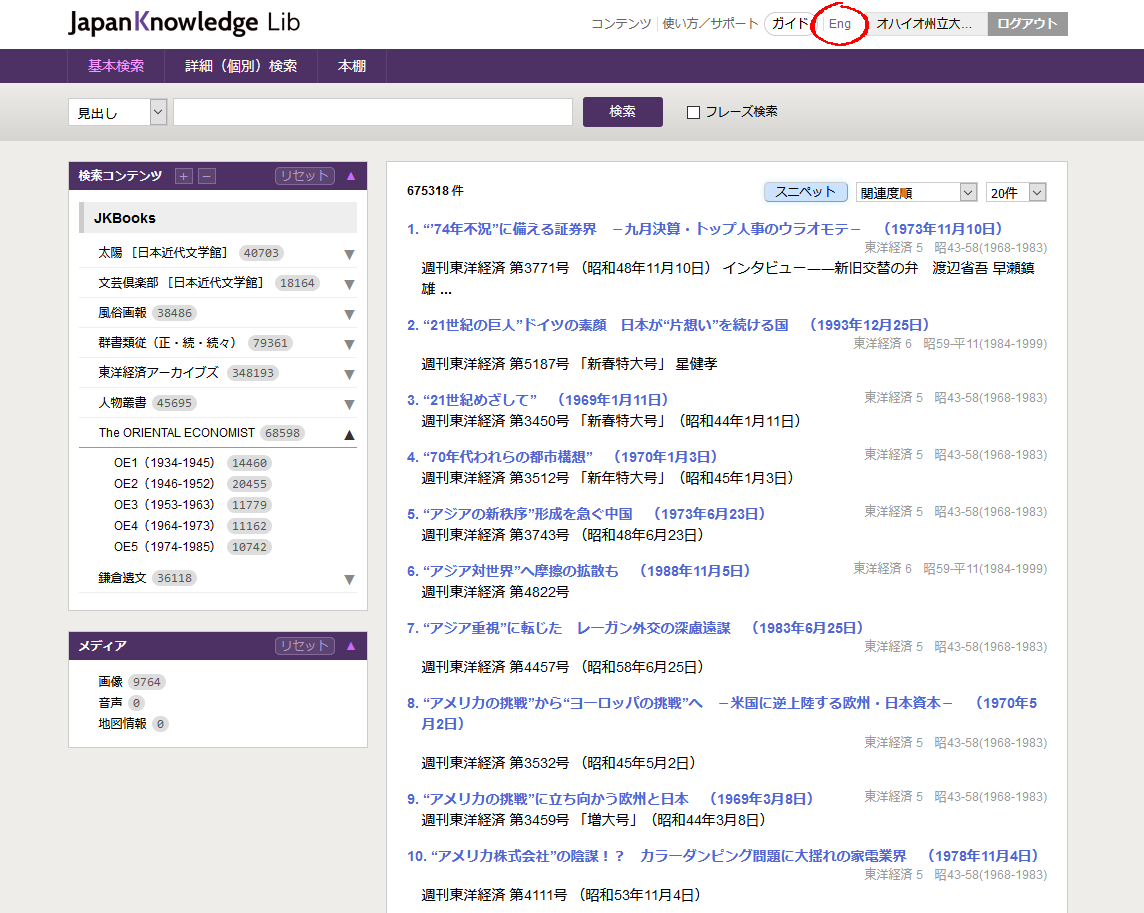
On the top purple ribbon, you will see a menu leading to three different search pages to help you find the content you need in the database: Basic Search (基本検査), Advanced Search ( 詳細(個別)検査), and Book Shelf (本棚).
Basic Search allows searches on particular words or phrases contained in any of the archived materials. Advanced Search lets you narrow your options a bit, letting you drill down within one or more particular collection(s). And finally, Book Shelf features a user-friendly interface that lays out each particular collection by volume, issue, and/or date of publishing. This may be your best choice if you are interested in a specific series in the database or simply want to browse the publications from cover to cover. The image below shows the “Book Shelf” search options available upon clicking the title The Oriental Economist, in JKBooks’ English-language interface.
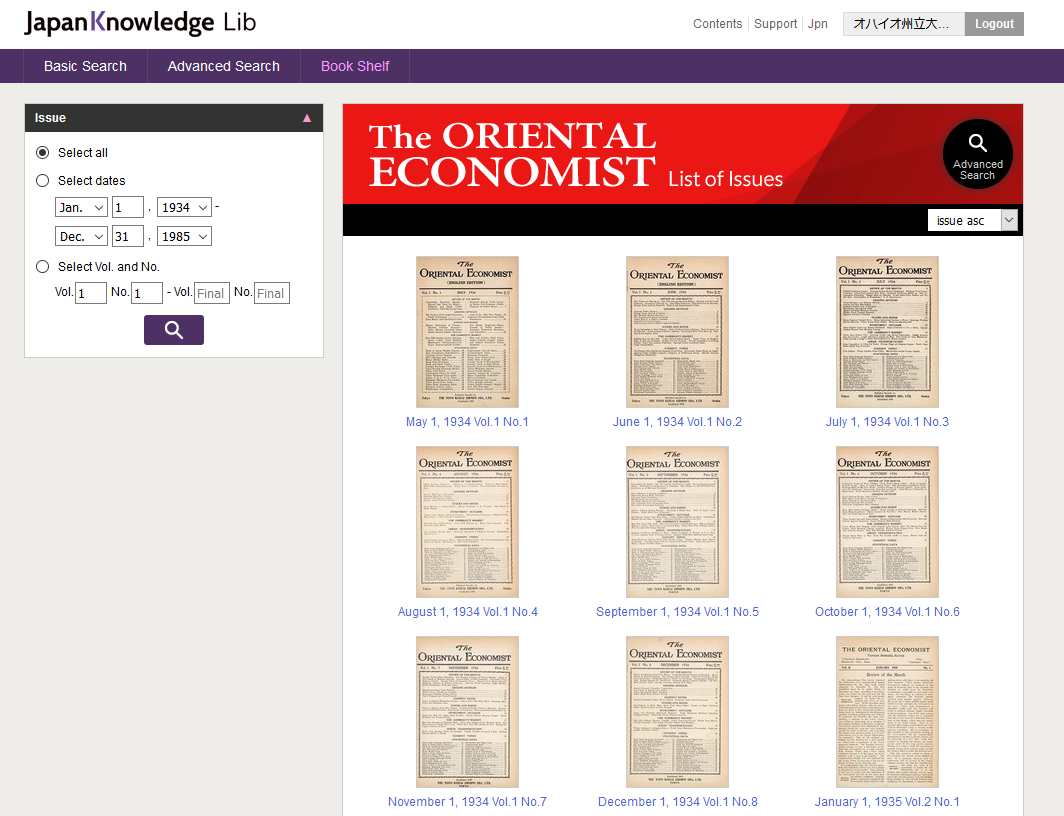
JK Books is an especially powerful resource for those who need primary sources in the vernacular and for those who are forced to work remotely. There is no shortage of unique perspectives and in-context information hiding in this treasure trove of
materials!
Current JKBooks at OSU
- Taiyo [Nihon Kindai Bungakukan]
- Bungei Kurabu: Meiji-hen [Nihon Kindai Bungakukan]
- Kindai sakka genkokushu [Nihon Kindai Bugakukan]*
- Fuzoku Gaho
- Gunsho Ruiju series
- Bijutsu Shinpo*
- Toyo Keizai Shimpo / Weekly Toyo Keizai Digital Archives
- Jinbutsu Sosho
- The ORIENTAL ECONOMIST Digital Archives
- Kamakura Ibun
- Bungeishunju Archives*
Note: Titles with asterisks (*) denote new databases acquired in academic year 2020-21.
If you have any questions regarding this resource, or any other resource offered for Japanese Studies at the OSU Libraries, please contact Dr. Ann Marie Davis, Japanese Studies Librarian at the Ohio State University: davis.5257@osu.edu.



